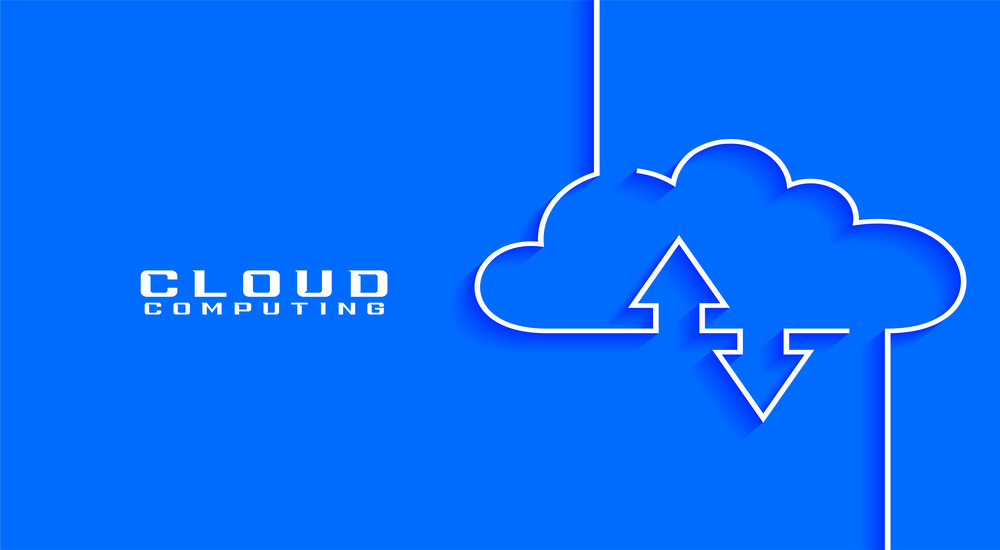TRUSTED BY THE SMARTEST TEAMS IN THE WORLD FOR CERTIFIED CANDIDATES
SPOTO Blogs
Useful learning materials to become certified IT personnel
-
- 788
- Emma
- 2025-05-06 14:45
-
- 1644
- circle
- 2025-03-04 15:38
-
- 1364
- circle
- 2025-02-21 15:39
-
- 1273
- circle
- 2025-02-17 10:00
-
- 5731
- circle
- 2025-02-14 15:03
-
- 1162
- circle
- 2025-02-11 11:14
-
- 1463
- circle
- 2025-02-10 10:34
-
- 1800
- circle
- 2025-02-05 13:15
-
- 1533
- SPOTO
- 2024-05-14 17:11
TRUSTED BY THE SMARTEST TEAMS IN THE WORLD FOR CERTIFIED CANDIDATES
SPOTO Blogs
Useful learning materials to become certified IT personnel
-
- 788
- Emma
- 2025-05-06 14:45
Table of Contents1. Overview of AWS Associate Certifications2. Associate Certifications Breakdown3. Benefits of AWS Associate Certifications4. How to Prepare for AWS Associate Certifications5. Conclusion AWS Associate Certifications are a set of credentials provided by Amazon Web Services (AWS) that confirm a person's fundamental to intermediate skills and knowledge in different AWS services and technologies. 1. Overview of AWS Associate Certifications To truly cement your status as an ecosystem authority and unlock higher income opportunities, AWS Certification delivers unmatched value. Amazon Web Services (AWS) offers three associate-level certifications, namely: AWS Certified Solutions Architect – Associate AWS Certified Developer – Associate AWS Certified SysOps Administrator – Associate Each certification by Amazon is designed with a particular job profile in mind. Which AWS Associate cert would be the best fit for my goals? 2. Associate Certifications Breakdown AWS Certified Developer - Associate is designed for software development professionals. This certification requires at least one year of hands-on experience in building, debugging, and optimizing cloud applications using AWS services. AWS Certified SysOps Administrator - Associate is targeting cloud operations engineers; this certification demands 1-2 years of practical AWS experience, including resource provisioning, system monitoring, and troubleshooting capabilities. AWS Certified Solutions Architect - Associate is ideal for cloud architecture professionals. Candidates should master AWS high-availability design principles and possess 1+ years of practical experience in building cost-optimized, elastically scalable systems. AWS Certified Solutions Architect – Associate The AWS Solutions Architect Associate certification is more suitable for IT professionals who have a proficient understanding of a wide range of AWS services and technologies. Key Skills Validated: Have expertise in AWS services covering computing, storage, and databases. Capable of deploying, monitoring, and managing resources on AWS. Familiar with the AWS Management Console, CLI, Well-Architected Framework, network configuration, and security solutions. Able to select appropriate AWS services based on technical requirements. AWS Certified Developer – Associate AWS Certified Developer – Associate focuses on skills related to developing, testing, and maintaining applications on the AWS platform. The AWS Certified Developer certification is an ideal choice for professionals aiming to build solutions on the AWS platform. Key Skills Validated: Design and optimize applications for AWS. Protect application code and data. Identify and resolve application issues. AWS Certified SysOps Administrator – Associate If you're a professional eager to work with AWS-built solutions, the AWS Certified SysOps Administrator – Associate certification is an ideal choice. It highlights deployment, management, and the smooth running of operations in AWS environments. Key Skills Validated: Knowledge of monitoring and metrics in AWS. Skills in designing fault-tolerant and highly available systems. Proficiency in troubleshooting and configuring IAM policies. 3. Benefits of AWS Associate Certifications Prove Your Expertise AWS Associate Level Certifications are the industry-standard validation of your AWS proficiency. This recognition is highly valued by employers, and recruiters prioritize AWS-certified candidates when they are hiring for IT positions. Master In-Demand Skills Securing an associate-level certification serves as a stepping stone to AWS specialty certifications. You can enhance your employer value by expanding your knowledge in areas such as machine learning, advanced networking and Alexa SkillBuilder, or data analytics. Power Your Side Projects an AWS certification, you can tackle ambitious projects that require robust server capabilities. Whether in machine learning, data analysis, or specialized domains, AWS skills elevate your project's potential. Unlock Lucrative Career Opportunities An AWS certificate opens the door to lucrative, sustainable career paths. As you earn additional certifications and deepen your expertise, you qualify for more advanced roles—boosting earning potential and securing a rewarding future. 4. How to Prepare for AWS Associate Certifications Review the Exam Blueprint AWS provides official exam outlines specifying the test domains and key knowledge areas, which help candidates focus their preparation effectively on the most critical topics. Gain Hands-on Experience Practical proficiency with AWS services is essential for exam success, so regularly working with core services like EC2, S3, and Lambda will build real-world competence. Enroll in Specialized Training Platforms like SPOTO offer tailored courses for each technical certification path, featuring hands-on labs and practice exams that simulate actual test conditions. Leverage AWS papers and documentation These resources provide in-depth insights into AWS best practices, including architecture frameworks and service-specific implementation guidelines for optimal cloud solutions. Engage with the AWS Community Participating in AWS forums and study groups yields valuable insights and support. 5. Conclusion AWS Associate Certification: Validate Your Cloud Expertise The AWS Associate certification serves as a critical benchmark for professionals to demonstrate their technical competencies in cloud computing. Covering core domains including architecture design, operational management, and security compliance, this certification helps credential holders stand out in the competitive IT job market. With structured learning and hands-on practice in real AWS environments, candidates can not only pass the exam but also build a strong foundation for pursuing advanced specialty certifications—unlocking high-value career opportunities in the era of digital transformation. It is advisable that you get fully ready, remain focused throughout, and accomplish your goals. For any concerns or questions, we're here for you and encourage you to contact us. -
- 1644
- circle
- 2025-03-04 15:38
Table of ContentsOverview of AWS Specialty CertificationsAWS Specialty Certifications BreakdownBenefits of AWS Specialty CertificationsHow to Prepare for AWS Specialty CertificationsConclusion Amazon Web Services (AWS) has established itself as a leader in cloud computing, offering a wide range of certifications tailored to different expertise levels. Among these, the AWS Specialty Level Certifications stand out for their focus on advanced, niche domains within the AWS ecosystem. These certifications are designed for professionals with deep technical knowledge and experience in specific areas such as security, networking, and machine learning. This article explores the different AWS Specialty Certifications, their requirements, benefits, and tips for earning them. Overview of AWS Specialty Certifications AWS offers three Specialty certifications, each catering to a specific area of expertise: AWS Certified Advanced Networking – Specialty AWS Certified Security – Specialty AWS Certified Machine Learning – Specialty Each certification validates an individual's ability to design, implement, and manage AWS solutions in the respective domain. AWS Specialty Certifications Breakdown 1. AWS Certified Advanced Networking – Specialty This certification is ideal for network engineers and professionals responsible for implementing and managing AWS and hybrid IT network architectures. It tests an individual's ability to design and maintain scalable and secure networks on AWS. Key Skills Validated: Designing and implementing AWS hybrid IT architectures Automating AWS networking tasks Implementing security best practices Troubleshooting networking issues Recommended Experience: Individuals who perform complex networking tasks with five years of hands-on experience architecting and implementing network solutions. 2. AWS Certified Security – Specialty Security remains a critical aspect of cloud computing, and this certification is designed for professionals focusing on securing AWS workloads. It assesses expertise in data encryption, identity and access management (IAM), security monitoring, and incident response. Key Skills Validated: Understanding AWS security services and controls Implementing secure application architectures Managing security incident responses Designing security monitoring and logging solutions Recommended Experience: Five years of IT security experience, with at least two years of hands-on AWS security experience. 3. AWS Certified Machine Learning – Specialty As machine learning (ML) becomes a fundamental part of business strategy, AWS provides this certification for professionals working with ML and AI services. Key Skills Validated: Building, training, tuning, and deploying ML models on AWS Identifying appropriate ML solutions for business challenges Implementing best practices for data preparation and feature engineering Optimizing ML models for performance and cost-effectiveness Recommended Experience: One to two years of hands-on experience with AWS ML services and a solid background in ML frameworks and algorithms. Benefits of AWS Specialty Certifications 1. Career Advancement Holding an AWS Specialty certification demonstrates expertise in a specific domain, making professionals more competitive in the job market and increasing their earning potential. 2. Industry Recognition AWS certifications are globally recognized, providing credibility and validation of an individual's skills and knowledge. 3. Expanded Job Opportunities AWS Specialty certifications open doors to specialized roles such as Security Architect, Machine Learning Engineer, and Network Engineer. 4. Staying Ahead of Technological Trends Earning a specialty certification ensures that professionals stay updated with the latest AWS advancements and best practices. How to Prepare for AWS Specialty Certifications Understand the Exam Guide: AWS provides an official exam guide detailing the domains and key topics covered. Gain Hands-on Experience: Practical experience with AWS services is crucial for success. Take Training Courses: AWS and platforms like SPOTO offer training courses tailored for each specialty certification. Use AWS Whitepapers and Documentation: These resources provide deep insights into AWS best practices. Practice with Sample Questions: Taking practice exams helps identify areas of improvement. Join AWS Communities: Engaging with AWS forums and study groups can provide valuable insights and support. Conclusion AWS Specialty Certifications are an excellent way for professionals to validate their expertise in niche areas of AWS. Whether it's security, networking, or machine learning, these certifications provide a competitive edge and enhance career growth. With thorough preparation and hands-on experience, candidates can achieve AWS Specialty certifications and unlock new career opportunities in the cloud computing industry. -
- 1364
- circle
- 2025-02-21 15:39
In today's fast-evolving tech landscape, cloud computing has emerged as the backbone of most modern businesses, and AWS (Amazon Web Services) stands as the undisputed leader in this space. Whether you're a seasoned IT professional or someone new to the field, earning an AWS certification can dramatically enhance your career prospects. But what exactly makes AWS certification so valuable? Let's explore 10 compelling reasons why you should consider pursuing and passing AWS certification. 1. Increased Career Opportunities AWS is a global leader in cloud computing, and its services are used by millions of customers worldwide. As a result, the demand for skilled professionals who are proficient in AWS is skyrocketing. Earning an AWS certification can give you a competitive edge in the job market and open doors to roles in cloud architecture, systems engineering, DevOps, and more. Certified professionals are in high demand because companies are increasingly looking to migrate their workloads to the cloud and need experts to manage their infrastructure. 2. Higher Salary Potential According to various industry reports, certified AWS professionals tend to earn higher salaries than their non-certified counterparts. AWS-certified individuals can command a premium due to their proven expertise in cloud computing and AWS services. If you're looking to boost your earning potential, an AWS certification can give you a clear path to higher-paying opportunities. AWS certifications are recognized across industries and are often a requirement for certain high-paying positions, further validating their value. 3. Validation of Your Skills Passing the AWS certification exam provides official recognition of your cloud computing skills. Whether you're an experienced cloud engineer or someone looking to prove their knowledge, an AWS certification validates your ability to deploy, manage, and scale AWS solutions. This recognition can be an asset to your professional reputation and provide your employer with confidence in your abilities. It's an excellent way to showcase your technical expertise and prove that you're up to date with the latest cloud trends. 4. Access to AWS's Vast Ecosystem AWS offers a vast ecosystem of services, tools, and technologies that span areas like compute, storage, networking, machine learning, IoT, and security. By earning an AWS certification, you'll gain access to this robust environment and be able to navigate it with ease. Additionally, AWS-certified professionals are often given priority access to exclusive resources, including training, events, and support channels. These tools and resources will keep you ahead of the curve, providing you with ongoing growth opportunities. 5. Better Job Security As businesses continue to embrace the cloud, they require professionals who can ensure that their infrastructure is robust, scalable, and cost-effective. AWS-certified professionals are integral to the success of these cloud-based transformations, making them a critical asset to their companies. The demand for skilled AWS experts only continues to grow, which means better job security for those with the certification. In a rapidly changing job market, cloud computing skills are often seen as a safeguard against obsolescence. 6. Flexibility to Work Across Industries AWS is used by a wide range of organizations, from startups to Fortune 500 companies, across virtually every industry. This makes AWS certification a versatile credential. Whether you're interested in working in finance, healthcare, education, or e-commerce, the skills you acquire with AWS certification will be applicable across the board. The ability to transfer your skills between industries opens up a wealth of opportunities. 7. Enhance Your Knowledge and Skills Preparing for the AWS certification exam involves in-depth study of various AWS services and how they can be effectively leveraged to build scalable and efficient cloud solutions. As you work toward certification, you'll gain a deeper understanding of AWS best practices, architectural principles, and security measures. This knowledge can be applied directly to your current job or used to elevate your career prospects in the future. AWS certification isn't just about passing an exam—it's about growing your technical expertise and mastering cloud computing concepts. 8. Join a Global Network of Professionals By earning an AWS certification, you'll join a global community of certified professionals who are recognized as experts in the field. AWS certification holders get access to a dedicated AWS Certified LinkedIn group and can attend AWS summits, webinars, and special events where you can network with other professionals, exchange knowledge, and explore collaboration opportunities. This community provides support, career advancement tips, and inspiration to help you continuously grow in your field. 9. Enhanced Credibility with Employers and Clients For consultants, contractors, or anyone who works with clients, having an AWS certification is a strong selling point. It demonstrates that you possess the knowledge and skills to help clients deploy cloud solutions that are cost-effective, secure, and scalable. For employers, it's an assurance that you can deliver high-quality, cloud-driven solutions that align with business goals. In many cases, companies prioritize certified professionals when selecting contractors or full-time employees. 10. Future-Proof Your Career The cloud is the future of IT, and AWS is at the forefront of this revolution. As more organizations migrate to the cloud, the need for skilled cloud professionals will continue to increase. By gaining an AWS certification, you are positioning yourself as a leader in the cloud computing space, ensuring that your career remains relevant and future-proof. Having AWS certification provides you with the foundation to stay ahead of technological advances, especially with machine learning, AI, and serverless computing taking center stage in cloud innovation. Conclusion Passing an AWS certification isn't just about adding a credential to your resume. It's a way to validate your skills, expand your career opportunities, and ensure you stay relevant in a rapidly evolving industry. Whether you're just starting your cloud journey or looking to take your expertise to the next level, AWS certification is an investment in your future. With demand for AWS-certified professionals showing no signs of slowing down, there has never been a better time to start preparing for and passing your AWS certification exam. -
- 1273
- circle
- 2025-02-17 10:00
The cloud is no longer a futuristic technology—it's the backbone of today's digital infrastructure. Amazon Web Services (AWS) is the dominant player in the cloud market, powering everything from startups to Fortune 500 companies. If you're looking to break into the tech industry or take your career to the next level, earning an AWS Certification is a great way to start. For beginners, AWS offers a clear and structured certification path that helps build foundational knowledge, preparing you for a wide range of cloud roles. Whether you're aiming to become a Solutions Architect, Cloud Developer, or SysOps Administrator, the path starts with the AWS Certified Cloud Practitioner and continues with more advanced certifications. In this article, we'll break down everything you need to know about starting your AWS journey as a beginner, from choosing the right certification to preparing effectively. 1. Why AWS Certification? Before diving into the specifics of AWS certifications, let's understand why this credential is so valuable: Industry Demand: AWS is the leading cloud provider globally, and many companies prefer candidates who are proficient in its services. The demand for AWS-certified professionals is skyrocketing, with cloud-related jobs growing across various industries. High Earning Potential: AWS-certified professionals often command higher salaries due to their specialized skills. According to the 2023 IT Skills and Salary Report, AWS certifications are among the highest-paying credentials in IT. Versatile Skillset: AWS certifications cover a wide range of cloud topics, from architecture and deployment to security and cost optimization. Whether you're interested in software development, networking, or data engineering, there's a certification that fits your career aspirations. 2. Getting Started with AWS Certification: The Foundation If you're new to AWS, the best way to start is with the AWS Certified Cloud Practitioner exam. This foundational-level certification is designed for individuals with little to no cloud experience. It provides a solid introduction to AWS cloud concepts and basic AWS services, without diving into the technical depths of more advanced certifications. Exam Overview: The AWS Certified Cloud Practitioner exam assesses your understanding of cloud fundamentals, the AWS global infrastructure, basic AWS services (such as EC2, S3, and IAM), security, pricing, and support. Preparation Time: For beginners, it usually takes around 25-40 hours of study to prepare for the exam. This includes reading AWS whitepapers, watching video tutorials, and using practice exams to test your knowledge. Target Audience: This certification is ideal for entry-level IT professionals, business analysts, sales professionals, and anyone who wants to build foundational cloud knowledge. 3. What's Next After the Cloud Practitioner Certification? Once you've earned the AWS Certified Cloud Practitioner certification, you have a strong foundation in cloud concepts. The next step depends on your career goals and the specific role you want to pursue. The two most popular paths are: AWS Certified Solutions Architect – Associate The AWS Certified Solutions Architect – Associate exam is the next logical step for those interested in designing and deploying scalable systems on AWS. It focuses on core AWS services, cloud architecture, security best practices, and cost optimization strategies. This certification is ideal for individuals looking to become cloud architects or solutions engineers. Preparation Time: Expect to spend 100-120 hours on study and hands-on practice. This includes learning services like VPC, EC2, RDS, CloudFormation, and Route 53. AWS Certified Developer – Associate If you have a background in software development and want to specialize in developing cloud applications, the AWS Certified Developer – Associate certification is a great choice. This certification tests your knowledge of deploying applications on AWS, working with AWS APIs, and leveraging AWS developer tools. Preparation Time: Similar to the Solutions Architect path, you'll need around 100-120 hours of study time to cover topics like AWS Lambda, DynamoDB, Elastic Beanstalk, and CloudWatch. 4. Hands-On Practice: The Key to Success For beginners, hands-on practice is essential to truly understand AWS concepts. AWS provides a Free Tier, which allows you to explore and experiment with various services at no cost, within certain limits. Here's how to get started with hands-on practice: Set up an EC2 instance: Launch a virtual server on AWS and explore how to configure, connect to, and manage it. Use S3 for Storage: Learn how to store, retrieve, and manage data in AWS S3 buckets. Create a VPC: Set up a Virtual Private Cloud (VPC) to understand networking and security in the cloud. Explore IAM: Experiment with creating IAM users and assigning roles and permissions to control access to AWS resources. By actively engaging with the AWS environment, you'll gain a deeper understanding of the services and tools you'll need to succeed in your exams. 5. AWS Certification Study Resources There are many study resources available to help you prepare for your certification exams: AWS Training and Certification: AWS offers a variety of free and paid training resources, including digital training, classroom training, and exam readiness webinars. A Cloud Guru: This platform offers structured courses tailored to AWS certifications, with hands-on labs and practice exams. Linux Academy: Now part of A Cloud Guru, it provides in-depth video courses and cloud labs for AWS certification preparation. AWS Whitepapers: Reading AWS whitepapers on security, architecture best practices, and pricing models is an excellent way to dive deeper into AWS's core principles. Practice Exams: Use practice exams from platforms like SPOTO to simulate the actual exam environment. 6. Tips for Success To maximize your chances of passing the AWS certification exams, consider the following tips: Focus on Core Services: For the foundational and associate-level exams, ensure that you are familiar with key services such as EC2, S3, IAM, VPC, and CloudWatch. Understand AWS Pricing: Many exams include questions on AWS's pricing models, billing, and cost optimization, so make sure you're familiar with how AWS charges for its services. Time Management: During the exam, manage your time wisely. Don't spend too long on any one question; move on and come back if needed. Use the AWS Documentation: AWS documentation is a great resource during exam preparation, so don't hesitate to consult it if you're unsure about a topic. 7. Where Can an AWS Certification Take You? Once you earn your AWS certification, a world of job opportunities opens up. Companies across the globe are seeking skilled cloud professionals to help them move to and manage their cloud infrastructure. Here are some common roles for AWS-certified professionals: Cloud Architect: Design and implement scalable, secure, and cost-effective cloud architectures. Cloud Developer: Build and deploy cloud-based applications and services using AWS technologies. SysOps Administrator: Manage and monitor cloud infrastructure, ensuring it runs smoothly and securely. Cloud Security Engineer: Ensure the security of cloud applications and services through secure design, implementation, and management. AWS certifications provide a pathway to high-paying and rewarding roles across industries like finance, healthcare, e-commerce, IT, and more. Conclusion Starting your cloud career with an AWS Certification is one of the smartest decisions you can make today. The certification journey begins with the AWS Certified Cloud Practitioner, a solid foundation for anyone new to the cloud. From there, you can progress to more advanced certifications depending on your career goals. With the demand for cloud professionals on the rise, earning an AWS certification opens doors to exciting job opportunities and career advancement. By investing time in hands-on practice, leveraging study resources, and focusing on key AWS concepts, you'll be well on your way to becoming a cloud expert in no time! -
- 5731
- circle
- 2025-02-14 15:03
The cloud computing industry is booming, and Amazon Web Services (AWS) stands as the undisputed leader in this space. With its expansive range of cloud services, AWS offers certifications that are recognized worldwide as benchmarks for cloud proficiency. Whether you're pursuing the AWS Certified Solutions Architect – Associate, AWS Certified Developer, or AWS Certified SysOps Administrator, the certification process can be daunting for beginners. A common question that arises during preparation is: How many cloud hours (or hours spent learning and working with AWS) do you need before you're ready to sit for the exam? While no fixed number of hours guarantees success, there are general guidelines and strategies you can follow to ensure you're adequately prepared. Let's break it down. 1. Understanding the AWS Certification Levels Before diving into how many cloud hours you'll need, it's important to understand the different AWS certification levels. AWS certifications are categorized into four main tiers: Foundational: For beginners, such as the AWS Certified Cloud Practitioner. Associate: Intermediate-level certifications, such as Solutions Architect – Associate, Developer – Associate, and SysOps Administrator – Associate. Professional: Advanced-level certifications, including Solutions Architect – Professional and DevOps Engineer – Professional. Specialty: Focused on specialized knowledge, such as Advanced Networking or Machine Learning. For most people starting out, the foundational and associate-level certifications are the main goal. As you progress to the professional or specialty levels, the cloud hours and experience required will increase significantly. 2. Cloud Hours: What Are We Talking About? When we talk about cloud hours, we are generally referring to two things: Study Hours: Time spent on training, watching courses, reading official AWS documentation, and practicing concepts. Hands-On Hours: Time spent using AWS services in a real or virtual environment—setting up EC2 instances, working with S3 storage, configuring VPCs, etc. For each of these, the number of hours you need will vary based on your background, experience, and the certification you're pursuing. 3. How Many Cloud Hours for AWS Certified Cloud Practitioner? The AWS Certified Cloud Practitioner is the entry-level certification aimed at individuals with basic knowledge of AWS and the cloud. It's a great starting point for anyone new to the cloud. Study Hours: Generally, it takes around 25-40 hours of study to prepare for the Cloud Practitioner exam. This includes watching videos, reading whitepapers, and familiarizing yourself with AWS services. Hands-On Hours: You don't need extensive hands-on practice for this certification, but about 10-15 hours of experimenting with the AWS Free Tier should be enough to understand core services like EC2, S3, and IAM (Identity and Access Management). If you're new to cloud computing, this exam should take around 1-2 months of part-time preparation, depending on how much time you can dedicate each week. 4. How Many Cloud Hours for Associate-Level AWS Certifications? If you're aiming for an Associate-level certification like the AWS Certified Solutions Architect – Associate, things get a bit more involved. These exams require a deeper understanding of AWS services, best practices, and cloud architecture. Study Hours: Typically, you'll need 100-120 hours of focused study. This includes online courses, self-study, and revising key AWS concepts, such as VPC, Route 53, CloudFormation, EC2, RDS, and S3. Hands-On Hours: This is crucial. To truly grasp the practical aspects of the certification, you should spend 30-40 hours hands-on with AWS services. This will help you gain practical knowledge of how to deploy applications, manage resources, and troubleshoot common cloud problems. Time to Certify: Depending on your pace and experience level, you might need anywhere from 3-6 months to adequately prepare for the associate-level certifications. 5. How Many Cloud Hours for Professional-Level AWS Certifications? The Professional-level certifications are for advanced users and those with significant experience in AWS. The Solutions Architect – Professional or DevOps Engineer – Professional exams require in-depth knowledge of large-scale cloud infrastructure, automation, and advanced troubleshooting techniques. Study Hours: These exams are rigorous, and you'll need 300-400 hours of study. This includes advanced architectural concepts, multi-region deployments, cost optimization, and cloud security. Professional-level preparation also often involves learning to design fault-tolerant, scalable, and highly available systems in AWS. Hands-On Hours: It's strongly recommended that you spend 100-150 hours building real-world scenarios on AWS. The complexity of these exams means that practical experience is key to performing well. Time to Certify: Given the advanced nature of these exams, expect to spend 6-12 months of dedicated study and hands-on practice to reach a level of preparedness for the professional certifications. 6. How Many Cloud Hours for AWS Specialty Certifications? Specialty certifications like AWS Certified Advanced Networking or AWS Certified Machine Learning focus on specific areas of expertise within AWS. These require a deep dive into particular AWS services and use cases. Study Hours: Specialty exams usually require 150-200 hours of study, especially for niche areas such as AWS IoT, machine learning, or security. Hands-On Hours: For specialized roles, you will need significant hands-on experience in that specific area. This might mean anywhere from 50-100 hours focused on the specific AWS service or domain. Time to Certify: Depending on your previous experience, you might need 4-6 months of focused study to pass a specialty exam. 7. Maximizing Your Cloud Hours for Effective Learning To make the most out of your cloud hours, follow these strategies: Use the AWS Free Tier: The AWS Free Tier gives you limited access to many AWS services without incurring costs, which is perfect for getting hands-on experience. Set Up Real-World Projects: Try creating and managing your own projects. For example, launch a simple website using EC2 and S3, or build a basic VPC with a couple of subnets and security groups. Focus on High-Impact Services: For associate and professional-level exams, ensure you're comfortable with key services like EC2, S3, VPC, IAM, and CloudWatch, which make up a large portion of the exam objectives. Learn by Doing: Set aside dedicated hands-on time for each concept you study. Don't just watch tutorials—apply what you've learned by configuring services, troubleshooting issues, and experimenting with different AWS features. 8. Additional Resources for AWS Exam Preparation Along with cloud hours, make use of quality study materials: AWS Training and Certification: AWS offers a variety of free and paid courses through its official training portal, including digital training, classroom training, and exam readiness courses. A Cloud Guru: Known for its in-depth AWS courses, A Cloud Guru offers structured learning paths for each AWS certification exam. Linux Academy (Now part of A Cloud Guru): This platform has great video tutorials and hands-on labs. SPOTO: SPOTO offers practice exams, quizzes, and mock tests that simulate the actual AWS exams. Conclusion The number of cloud hours required to achieve an AWS certification depends on the certification level and your experience with cloud technologies. For foundational exams, you might need anywhere from 50-100 hours of study and hands-on practice. For associate and professional-level certifications, expect to dedicate 200-400 hours. If you're pursuing a specialty certification, that number could go even higher. The key to success is to balance theoretical study with hands-on practice, using tools like the AWS Free Tier and training resources to build real-world experience. With patience, persistence, and a solid study plan, you'll be well on your way to becoming AWS certified! -
- 1162
- circle
- 2025-02-11 11:14
Amazon Web Services (AWS) has become a dominant force in the cloud computing landscape, offering a comprehensive suite of services that range from computing power to storage, databases, machine learning, and more. For beginners, AWS might seem overwhelming due to its sheer volume of services and features. However, with a solid foundation in a few key areas, you'll be better prepared to take advantage of what AWS has to offer. In this article, we'll break down the essential knowledge you need before you dive into the world of AWS. 1. Basic Networking Knowledge At its core, AWS is all about hosting and managing resources over the internet. To effectively navigate and configure AWS, you should have a basic understanding of networking concepts. AWS provides a virtual network environment where you'll configure and manage networking components such as VPCs (Virtual Private Clouds), subnets, and security groups. Key concepts to know: TCP/IP and DNS: These are fundamental to how data is transmitted over the internet and how AWS resolves domain names to IP addresses. IP Addressing: You need to understand how private and public IP addresses work, as well as subnetting to efficiently segment your network in AWS. Virtual Private Cloud (VPC): AWS VPC lets you define and control a virtual network within the AWS cloud, including choosing IP address ranges, subnets, and route tables. Security Groups and NACLs (Network Access Control Lists): These act as firewalls to control inbound and outbound traffic at the instance level (security groups) or subnet level (NACLs). 2. Understanding Cloud Computing Concepts Before you start exploring AWS, it's essential to have a grasp of cloud computing fundamentals. Cloud services differ from traditional on-premises infrastructure in many ways, and understanding these differences will help you make the most of AWS. Key concepts to understand: Cloud Models: AWS operates primarily under the IaaS (Infrastructure as a Service) and PaaS (Platform as a Service) models. You should understand the difference between these models and SaaS (Software as a Service). On-Demand vs. Reserved: AWS offers both on-demand and reserved instances. On-demand lets you pay for computing power as you need it, while reserved instances offer discounted rates for long-term commitments. Scalability and Elasticity: One of the key features of cloud computing is the ability to scale your resources up or down depending on your needs. AWS makes this process automated and flexible, allowing you to handle changing workloads. 3. Basic Command Line Knowledge (Especially Linux) While AWS provides a management console for most tasks, much of the real power comes from the AWS CLI (Command Line Interface) and API calls. Therefore, having familiarity with the command line (especially on Linux systems) will be beneficial. Many AWS services can be efficiently managed through the CLI, and a lot of tasks—such as launching EC2 instances or managing S3 storage—can be streamlined via scripts. Key concepts to learn: Linux/Unix commands: Many AWS services run on Linux-based systems, so understanding file management, permissions, and commands (like ls, cp, mv, chmod, chmod) will be helpful. Bash scripting: Learning how to write simple bash scripts will help you automate repetitive tasks in AWS. AWS CLI: The AWS CLI provides a powerful command-line interface to interact with AWS resources. You can manage instances, databases, storage, and more from the terminal using simple commands. 4. Understanding AWS Core Services AWS offers a wide array of services, but for beginners, it's important to focus on the core services that you'll use most frequently. These are the building blocks of AWS and understanding them will give you a strong foundation. Essential services to know: EC2 (Elastic Compute Cloud): EC2 allows you to run virtual machines in the cloud. You'll need to understand how to launch, manage, and terminate EC2 instances, as well as how to configure them for specific use cases. S3 (Simple Storage Service): S3 provides scalable object storage. You should learn how to upload, organize, and manage your data within buckets. RDS (Relational Database Service): RDS simplifies the process of setting up and managing relational databases in the cloud. Understanding RDS will be helpful if you plan to use AWS for database management. IAM (Identity and Access Management): IAM is crucial for managing security and access to your AWS resources. You should understand how to create users, groups, and roles, and how to manage permissions to secure your cloud environment. 5. Familiarity with AWS Pricing Models Cloud computing comes with various pricing options, and AWS is no different. It's crucial to understand how AWS charges for its services to avoid unexpected costs. Key pricing concepts to understand: Pay-as-you-go: Most AWS services operate on a pay-as-you-go pricing model, meaning you only pay for the resources you use. Free Tier: AWS offers a free tier that allows you to experiment with many services at no cost for the first 12 months. While the free tier is limited, it's a great way to start learning without incurring charges. Cost Explorer: AWS provides tools like Cost Explorer and Budgets to help you track and manage your usage and spending. 6. Security Best Practices Security is a critical concern in the cloud, and AWS offers a variety of tools to help you secure your environment. Learning AWS's security best practices will help you protect your data and applications. Key concepts to explore: Encryption: AWS provides encryption tools to protect data both at rest and in transit. Learn how to implement encryption on S3, EBS volumes, and in database storage. Access Control: Using IAM, you can manage access to your AWS resources by creating users and roles with specific permissions. Security Groups and NACLs: As mentioned earlier, these are vital for controlling traffic and ensuring that your resources are only accessible to authorized users. Conclusion Before you try AWS, it's important to lay a solid foundation in networking, cloud computing basics, command-line skills, AWS's core services, pricing models, and security best practices. AWS offers powerful, scalable, and flexible cloud solutions, but understanding these fundamentals will ensure that you can use them efficiently and avoid common pitfalls. Once you're comfortable with these concepts, you'll be ready to dive into the more advanced aspects of AWS and harness the full power of cloud computing. -
- 1463
- circle
- 2025-02-10 10:34
Amazon Web Services (AWS) certifications are among the most sought-after credentials in the IT industry. Whether you're aiming for AWS Certified Solutions Architect, Developer, or DevOps Engineer, passing an AWS exam requires a solid strategy, thorough preparation, and hands-on experience. If you're ready to take on the challenge, here are the top 10 strategies to help you pass your AWS certification exam on the first attempt. 1. Choose the Right AWS Certification AWS offers multiple certification levels, including Foundational, Associate, Professional, and Specialty. Before diving into preparation, determine which certification aligns with your skills and career goals. Beginner? Start with AWS Certified Cloud Practitioner. Developer or Engineer? Consider AWS Solutions Architect – Associate or AWS Developer – Associate. Advanced Roles? Go for Professional or Specialty certifications like AWS Security or Advanced Networking. Choosing the right certification ensures you focus your efforts on the most relevant topics. 2. Understand the AWS Exam Blueprint Each AWS certification exam has a defined exam guide that outlines key domains and topics covered. This guide is available on the official AWS Certification website. Familiarize yourself with: Exam objectives and topic weightage Question formats, such as multiple-choice and multiple-response AWS whitepapers and recommended resources By knowing what to expect, you can create a study plan tailored to the exam content. 3. Use Official AWS Training Resources AWS provides free and paid training resources to help candidates prepare, including: AWS Training & Certification Portal – Official courses for various AWS certifications. AWS Skill Builder – On-demand training with hands-on labs. AWS Whitepapers & FAQs – Essential reading for deep understanding. These resources come directly from AWS and are often referenced in the exam, making them invaluable study materials. 4. Enroll in an Online AWS Course Structured learning through online courses can simplify complex AWS concepts. Some of the best platforms include: SPOTO – Highly rated AWS training platform. Udemy (Stephane Maarek's Courses) – Covers in-depth AWS concepts with hands-on labs. Linux Academy – Offers interactive cloud training and practice exams. Investing in a quality AWS training course can significantly boost your chances of passing. 5. Get Hands-On Experience with AWS Free Tier AWS exams emphasize practical skills, so hands-on practice is essential. Create an AWS Free Tier account to experiment with: EC2 instances S3 storage IAM roles & security VPC networking Practicing real-world scenarios ensures you understand AWS services beyond theory, which is crucial for the exam. 6. Take AWS Practice Exams Practice exams help identify weak areas and familiarize you with the exam format. Use the following sources: AWS Official Practice Exams – Available for most AWS certifications. Whizlabs & Tutorials Dojo – Well-known for detailed practice questions. SPOTO – Highly rated for AWS exam simulation. Regular practice tests help build confidence and improve time management skills. 7. Learn to Manage Time During the Exam AWS exams are time-sensitive, with multiple complex scenarios. To avoid running out of time: Practice answering questions quickly Use the "Mark for Review" feature for tough questions Don't overthink—eliminate wrong answers and move on By simulating exam conditions, you can improve speed and accuracy. 8. Join AWS Study Groups & Communities Learning with others can reinforce knowledge and clarify doubts. Consider joining: AWS Community Forums – Discuss topics with other AWS learners. Reddit (r/AWSCertifications) – Active discussions and advice from test-takers. LinkedIn & Discord Groups – Great for networking and study sessions. Engaging in discussions helps solidify concepts and learn from experienced professionals. 9. Focus on AWS Security & Best Practices AWS emphasizes security, compliance, and best practices in all certification exams. Be sure to understand: IAM & access control – Roles, policies, authentication Networking & VPC security – Security Groups, NACLs Encryption & compliance – KMS, S3 bucket policies Mastering AWS security topics is critical for passing and excelling in real-world AWS roles. 10. Stay Consistent & Don't Cram AWS certifications require steady effort. Avoid last-minute cramming by: Studying daily for at least 1–2 hours Reviewing key concepts & AWS services regularly Taking breaks to absorb information Consistency is key to retaining AWS knowledge and feeling confident on exam day. Final Thoughts Passing an AWS certification requires a combination of structured learning, hands-on practice, and effective test-taking strategies. By following these 10 strategies, you can increase your chances of passing your AWS certification on the first attempt. Start with a solid plan, practice consistently, and don't be afraid to dive deep into AWS services. With dedication and the right approach, you'll be well on your way to earning an AWS certification that boosts your career. -
- 1800
- circle
- 2025-02-05 13:15
Table of ContentsKey Benefits of AWS CertificationsUnderstanding the Costs and Time CommitmentReal‑World ROI: When It’s “Worth It”Who Should Pursue AWS Certifications?Tips to Maximize Your AWS Certification Investment AWS certifications remain one of the most sought‑after credentials in tech, but is the investment of time, money, and effort truly worthwhile? In 2026, cloud skills are in high demand, and AWS certifications can unlock significant career and salary growth—provided you combine them with real‑world experience. This guide breaks down costs, ROI, and practical tips so you can decide if pursuing an AWS credential aligns with your goals. Key Benefits of AWS Certifications 1. Substantial Salary Uplift Certified AWS Solutions Architects command higher pay. U.S. professionals with the Associate‑level Solutions Architect certification average six‑figure salaries, often ranging from $125K to $160K annually. Those who advance to Professional or Specialty levels can see pay jump into the $160K–$180K range. 2. Enhanced Employability Listing AWS certifications on your resume signals validated cloud expertise to employers. Many job postings now explicitly require or strongly prefer AWS‑certified candidates for roles in architecture, DevOps, data engineering, and security. 3. Structured Learning Path AWS’s tiered certification model—from Cloud Practitioner through Associate, Professional, and Specialty—provides a clear roadmap. You’ll build foundational knowledge before tackling deeper technical areas like advanced networking, machine learning, or security. Understanding the Costs and Time Commitment Exam Fees Foundational (Cloud Practitioner): $100 Associate (e.g., Solutions Architect, Developer, SysOps): $150 Professional & Specialty: $300 each Training Resources Self‑Paced Courses: $100–$300 (Udemy, A Cloud Guru) Official AWS Classroom/Virtual: $800–$1,200 per course Bootcamps/Live Online: $1,000–$2,500 (includes labs and practice exams) Study Time Cloud Practitioner: ~20–40 hours (2–4 weeks) Associate: ~40–80 hours (4–8 weeks) Professional/Specialty: 120+ hours (8–12 weeks) When you budget both money and time, plan for 3–6 months to achieve an Associate‑level credential, and 6–9 months for advanced certifications. Real‑World ROI: When It’s “Worth It” Career Changers & Newcomers: Starting with the Cloud Practitioner plus an Associate cert can launch your cloud career, unlocking entry‑level roles that pay $80K–$100K. Seasoned Engineers: Senior professionals who earn Professional or Specialty certs often transition into architect, DevOps lead, or specialized roles—positions that routinely exceed $150K. Global Opportunities: Markets in Canada, Australia, the UK, Singapore, and the UAE equally reward AWS‑certified talent, often matching or exceeding U.S. pay scales. Important: The certification alone won’t guarantee employment. Hiring managers emphasize hands‑on experience, practical project portfolios, and the ability to architect real cloud solutions. Who Should Pursue AWS Certifications? You’re transitioning to cloud: AWS CERTIFICATIONS give you a validated baseline, easing entry into cloud engineer or operations roles. You aim for higher pay: Adding AWS certs to your résumé typically nets a 10–25% salary premium over non‑certified peers. You want career agility: Cloud skills are portable across industries—from finance and healthcare to gaming and e‑commerce. If you don’t plan to work in a cloud‑driven role, or you lack the time to gain hands‑on experience alongside certification, an AWS cert may not deliver maximum ROI. Tips to Maximize Your AWS Certification Investment Pair Certs with Practice: Build and share real AWS projects (e.g., on GitHub) to showcase skills beyond the exam. Use Free AWS Labs: Amazon’s free AWS Free Tier and community lab environments help you learn without extra cost. Target Your Path: Begin with the AWS Certified Cloud Practitioner; then choose an Associate track aligned to your career goals (Solutions Architect, Developer, or SysOps). Leverage Study Groups: Join forums, meetups, or Slack communities for peer support and exam tips. Plan for Renewal: AWS certs remain valid for three years. You can recertify via exam retake or earn 20 recertification credits through AWS-approved training. -
- 1533
- SPOTO
- 2024-05-14 17:11
Table of ContentsSAA-C03 Exam OverviewSAA-C03 Exam Preparation StrategiesPass the SAA-C03 Exam with SPOTO In the rapidly evolving cloud computing industry, Amazon Web Services (AWS) has emerged as a market leader, offering a wide range of innovative services backed by a robust technical foundation. As enterprises seek to enhance efficiency, reduce costs, and accelerate innovation through cloud technology, the demand for AWS-skilled professionals has been growing. Within this context, the AWS Certified Solutions Architect - Associate (SAA-C03) certification has become a valuable credential, recognized for its industry significance. This certification demonstrates an individual's proficiency in designing and deploying scalable, highly available, and fault-tolerant systems on the AWS platform. Given the importance of the SAA-C03 certification, many aspiring professionals are actively preparing to earn this qualification. However, the complex exam content and high standards can pose challenges for candidates. To succeed, they need a deep understanding of the exam structure, content, and effective preparation strategies. This blog aims to provide an in-depth analysis and introduction to the SAA-C03 exam, helping readers comprehend the true difficulty and focus areas. By sharing insights into past exam papers, preparation strategies, and exam tips, we aim to equip candidates with a comprehensive study guide to navigate the certification process successfully. SAA-C03 Exam Overview The AWS Certified Solutions Architect - Associate (SAA-C03) certification is designed to validate a candidate's ability to design reliable, scalable, and cost-effective solutions on the AWS cloud platform. This certification is targeted at professionals who currently hold or aspire to the role of solutions architect in the field of cloud computing. The SAA-C03 exam assesses candidates' knowledge and practical skills in areas such as designing robust and highly available systems, implementing cost-optimization strategies, and ensuring data security and compliance on the AWS platform. Exam Duration The SAA-C03 exam is 130 minutes long, during which candidates must answer all the questions. Question Types The exam consists of multiple-choice and multi-select questions designed to assess a candidate's understanding of AWS services and their ability to design and deploy AWS-based solutions. Exam Topics Networking Focus: Understand Amazon VPC, internet gateways, route tables, security groups, and how they work together to support cloud applications. Difficulty: Grasp complex network configurations like VPC peering, Direct Connect, and VPN connections, and their impact on performance and security. Security Focus: Familiarize with IAM, KMS, security groups, and network ACLs to protect AWS resources. Challenges: Gain deep understanding of data encryption, key management, compliance requirements, and designing a security architecture that meets industry standards. Storage Focus: Learn about EBS, S3, Glacier, EFS, and their features, use cases, and cost-effectiveness. Difficulty: Understand data storage high availability, disaster recovery, migration strategies, and choosing the right storage solution. Compute Focus: Familiarize with EC2, Auto Scaling, Elastic Beanstalk, and Lambda, and how they support scalable and highly available applications. Difficulty: Designing an efficient computing architecture, including selecting instance types, configuring autoscaling, and optimizing costs. Databases Focus: Understand RDS, DynamoDB, ElastiCache, Redshift, and their key features and use cases. Challenge: Determine the appropriate database type to meet performance, consistency, availability, and scalability requirements. Development and Deployment Focus: Master best practices for application development and deployment using CloudFormation, CodeDeploy, ECS, and EKS. Difficulty: Design and implement DevOps processes, automate deployments, and ensure CI/CD. Management, Governance, and Compliance Focus: Familiarize with CloudWatch, Config, Trusted Advisor, and use them to monitor, manage, and optimize AWS resources. Difficulty: Develop an effective governance strategy to ensure compliance and respond to audit requirements. Cost Optimization Focus: Learn to use AWS Cost Explorer, Budgets, and other cost management tools. Challenges: Design cost-effective architectures, choose the right pricing models, and implement cost reduction strategies. By understanding the key focus areas and potential challenges, candidates can better prepare for the SAA-C03 exam and develop the necessary skills to design and implement effective AWS-based solutions. SAA-C03 Exam Preparation Strategies To successfully pass the SAA-C03 certification exam, candidates should adopt a comprehensive preparation strategy. Here are the recommended steps: Understand the Exam Syllabus: Thoroughly review the exam syllabus provided by AWS to identify the key services, concepts, and areas of focus for the assessment. Leverage Official Learning Resources: Utilize the wealth of resources offered by AWS, including exam guide, best practices, and online courses, to build a solid knowledge base. Take an Online Training Course: Enroll in a dedicated SAA-C03 exam preparation course, taught by experienced instructors, to cover all exam topics in depth. Hands-on Practice: Engage in hands-on activities and labs to familiarize yourself with the practical implementation of AWS services. SPOTO offers free resources for this purpose. Take Mock Exams: Test your knowledge and readiness by attempting free mock exams from SPOTO. This will help you identify knowledge gaps and get accustomed to the exam format and time constraints. Join a Study Group: Participate in an AWS study group or online forum to exchange ideas, strategies, and insights with other candidates, which can broaden your understanding. Analyze Past Exam Papers: If possible, review previous exam papers or candidate recall questions to gain insights into the types of questions and the overall difficulty level. Create a Study Plan: Develop a detailed study plan that allocates sufficient time for reviewing each exam topic, practicing hands-on activities, and taking mock exams. Focus on Weaker Areas: Identify topics or areas you find challenging and prioritize your review and practice efforts to strengthen your understanding in those areas. By following these comprehensive preparation strategies, candidates can increase their chances of success in the SAA-C03 certification exam and develop the necessary skills to design and deploy effective AWS-based solutions. Pass the SAA-C03 Exam with SPOTO For individuals juggling hectic schedules and struggling to find adequate time to prepare for the AWS Certified Solutions Architect - Associate (SAA-C03) exam, SPOTO's SAA-C03 exam dumps offer a compelling solution. This comprehensive resource not only includes the latest exam questions with accurate answers, but also provides the invaluable expertise of experienced professionals who meticulously explain every key knowledge point. One of the standout features of SPOTO's SAA-C03 exam dumps is its comprehensive coverage of the latest exam content. This ensures that candidates are well-equipped to handle any question they may encounter during the actual assessment, giving them a significant advantage in their preparation. Additionally, the inclusion of accurate answers allows individuals to verify their understanding and address any areas of uncertainty. Perhaps most notably, SPOTO's SAA-C03 exam dumps boast an impressive 100% passing rate. This remarkable track record is a testament to the effectiveness of the study materials and the expertise of the professionals involved in their development. With such a proven success rate, candidates can embark on their exam preparation with the assurance that they are on the path to success. In conclusion, for busy professionals seeking a reliable and effective study solution for the SAA-C03 exam, SPOTO's exam dumps emerge as an ideal choice. By offering comprehensive coverage of the latest exam content, expert explanations of key knowledge points, and a proven track record of success, these study materials stand out as a valuable resource for individuals striving to excel in their AWS certification endeavors.














